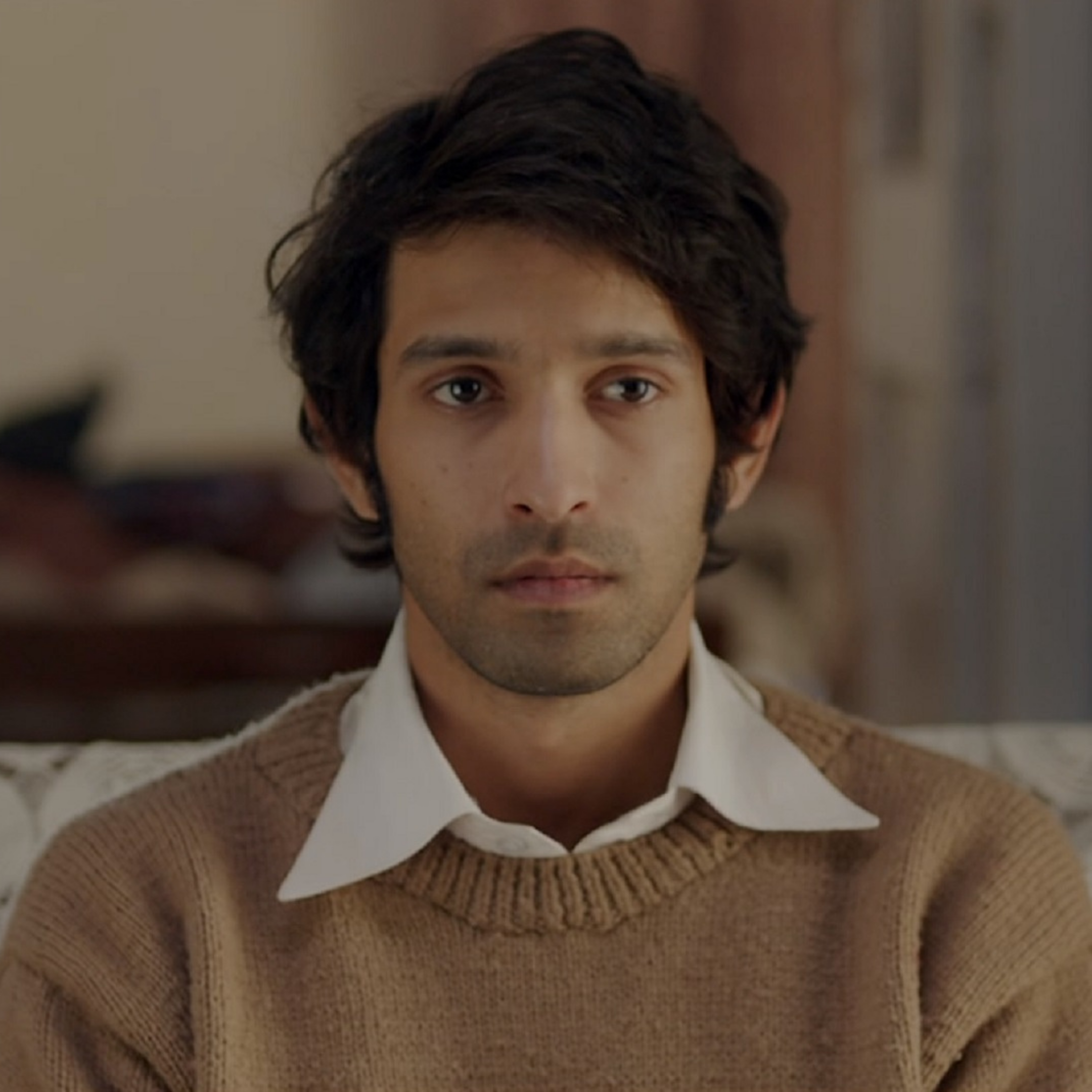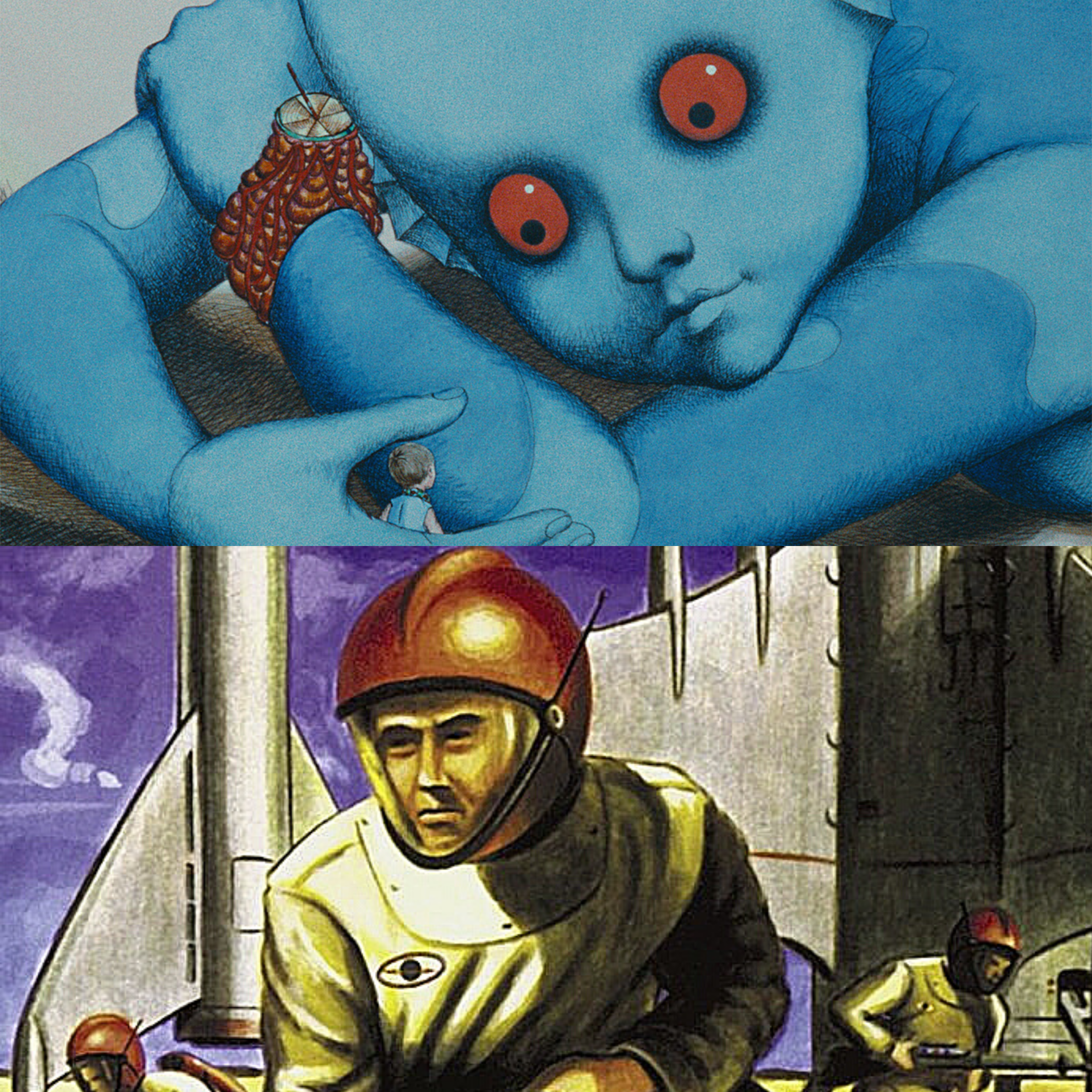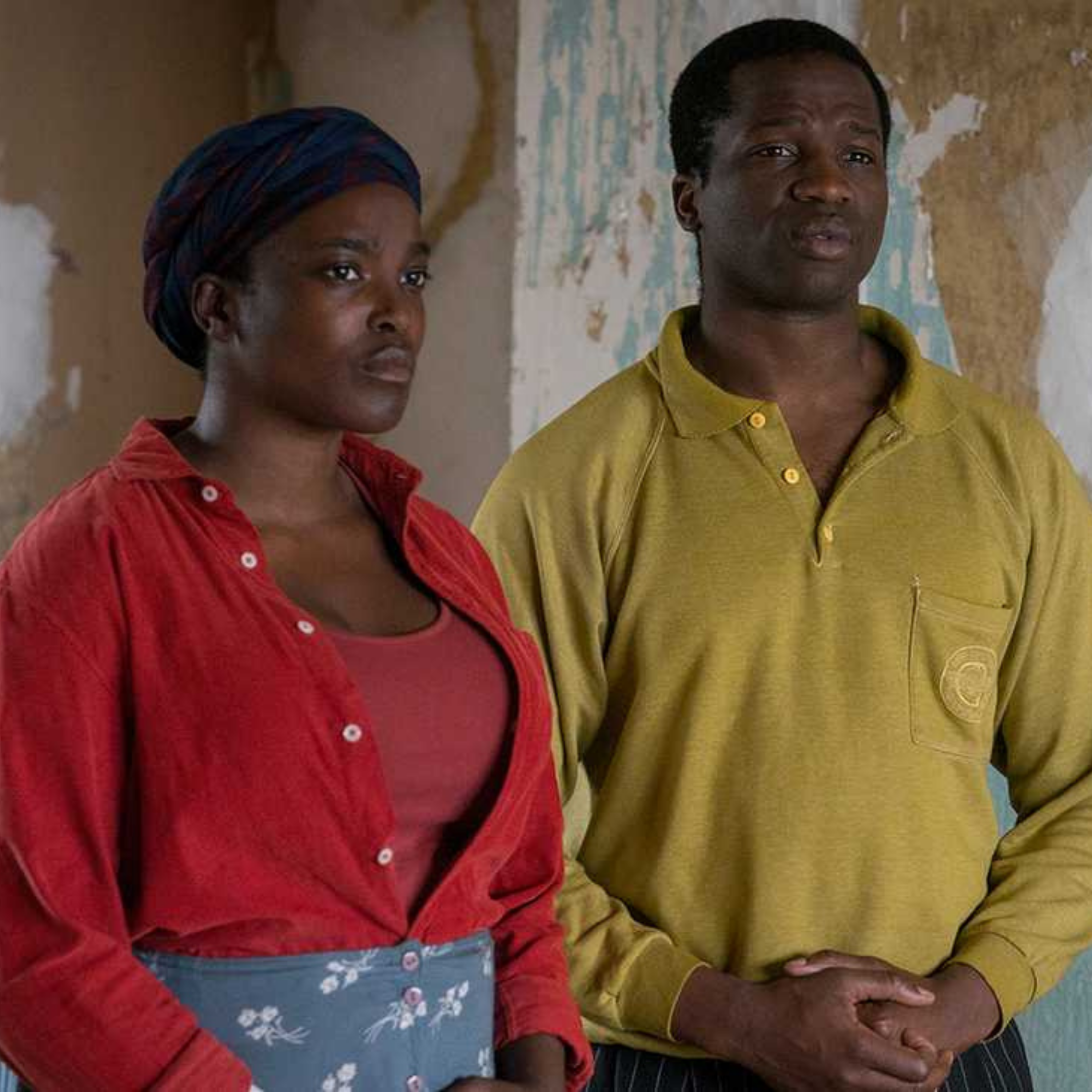How men are made – An analysis of a Death In The Gunj
Earlier today, I watched A Death in the Gunj for the second time in my life. After two viewings, and two subsequent cryings, I can safely say it’s among my favourite movies ever. When writing about this movie, a lot can be said about Konkona Sen Sharma’s direction, especially considering this is her directorial debut, the performance of the movie’s ensemble cast, particularly Vikrant Massey’s turn as the reticent, soft-spoken Shutu, and the pacing of the script, which suits its story perfectly. But what I want to write about is what made both my viewings such powerful experiences: the interactions between its characters, how these interactions spur their growth, and how their growth, in turn, brings out the themes of this movie. I’ve sought to avoid spoilers in the piece that follows, particularly the movie’s titular one, so it should be a safe read even for those who haven’t seen the film.
A synopsis
A Death In the Gunj has a simple premise. Nandan (nn: Nandu) and Bonnie Bakshi, spend the last few days of 1978 and the first few days of 1979 at the large home of Nandu’s parents (Anupama and O.P. Bakshi) in the old – and predominantly Anglo-Indian – town of McCluskieganj, with their eight-year-old daughter, Tania (nn: Tani), Nandu’s cousin, Shyamal (nn: Shutu), and family friend, Mitali (nn: Mimi). While there, they are joined by Nandu’s childhood friends, Vikram and Brian. The movie tells us the story of the week they spend together, primarily focusing on Shutu. Through the chronological retelling of the events of the week, it begs three questions. One, what does it mean to be an adult? Two, what does it mean to be a man? And three, what does it mean to be ‘in’?
‘There’s no cement’ //
What it means to be an adult
One way of seeing a Death in the Gunj is as a story of innocence lost. Shutu is shown to be very close to Tani, and the bond they share is shown to be based on a shared innocence. On close examination, however, the differing natures of these innocences becomes obvious. Take for instance, a conversation between them at the start of the movie, where Tani complains she doesn’t like her grandparents’ village home as much as she likes her own home at Kolkata. She has three reasons for this assessment – insects (fair), no TV (also understandable), and no cement. Seeing as she’s only eight, she finds the third reason perfectly reasonable: as reasonable as the first two. But to Shutu, who’s twenty-three years old, this seems amusing, so strange. And of course it does. Tani’s innocence is understandable at her age – she’s eight; of course she’s innocent. But Shutu’s innocence is rooted in his sensitivity, which results in his almost being trapped in a state of arrested adolescence. It isn't the same thing.
While it’s as clear to Shutu as it is to the audience that ‘no cement’ is the sort of innocent (and factually incorrect) reason an eight-year-old would dislike McCuskieganj, when Tani turns the conversation to what Shutu is up to, the audience is likely to find Shutu’s answer just as innocent and just as strange. He answers that he’s attempting to draw a frog, after earlier that day making a poor attempt of driving one out of Bonnie’s bathroom. And he wonders who among the two of them – Shutu and Tani – looks more like a frog. This reaction to spotting a frog – docility, sensitivity, and innocence – stands in stark contrast to how the film suggests the other adults, particularly the men, in the house would react. As a consequence, Nandu and the other men, who are all about a decade older than Shutu, see him as somewhat underdeveloped, not yet a man. And on the flipside, Shutu finds himself on a wavelength more compatible with Tani’s than theirs. So as the adult world of weddings, jobs, and affairs unfolds around Shutu, we witness his reluctance to enter it, maybe even a desire to remain unencumbered, a child.
If you were unfair to him, you’d say Shutu’s afraid of the adult world. Too thin-skinned to be part of it, too easily bullied. Too pristine to understand the nature of its relationships. Too naive to deal with the tragedies of what David Foster Wallace called ‘the day-to-day trenches of adult… life’, especially when they aren’t in his control. But if you were kinder, you’d see a person at the cusp of entering adulthood surrounded by imperfect examples of how to do so, and with little meaningful support.
Through most of the movie, he’s treated as a child by members of each of the three generations around him. His peers – ‘the adults’: Nandu, Bonnie, and their friends – resort to two broad modes of interaction: they either bully, like when they prank him into believing an evil spirit knows he’ll be the first among them to die, or they condescend, like when he’s repeatedly asked to run errands, or when Nandu chews him out when he fails to learn to drive a car within minutes of being forced to drive one for the first time. They’re often cruel to him, sometimes intentionally, but more often, unintentionally. His aunt starts off seeing him as a bright Masters student. But once she discovers that his grief from the recent passing of his father has resulted in his failing a semester, she begins to see a lost boy, and worse, a son who has abdicated responsibility for his mother (her sister). It’s no surprise that he’s closest to Tani, who sees him as a confidante, a friend: the person from the family she spends the most time with, not only at McCluskieganj, but also back home at Kolkata. However, this childlike friendship consequently further cements his alienation from the adult world.
So even the well-intentioned among these two generations see their complicity in his abuse as part of their responsibility to teach him to toughen up and ‘act his age’. In a telling scene, Nandu, when defending Vikram against Bonnie’s entirely fair accusations of cruelty, says of Shutu: ‘23 is not a kid… We were married [when we were 23…] He’s a grown man… He needs to toughen up. He needs to take care of his mother.’ This theme of ‘acting one’s age’ plays out more subtly with the other characters of the movie too. Bonnie convinces Tani not to be afraid of the howling dogs outside her window by telling her ‘she’s a big girl’. Nandu attempts to convince Anupama and O.P. to move to Kolkata rather than insist on staying on at McCluskieganj, with its poor facilities, ‘despite their age’. Through games of kabaddi, jibes about being unable to drink like a young person, and an obsession with motorcycles, the adults seem to desperately hang on to any semblance of their lost youth, while continuing to sing the praises of adult responsibility. There’s a dissonance, which manifests itself in all kinds of idiosyncratic immaturities when under stress: Mimi acts up, Bonnie is quick to blame, Brian has never held down a job, and Nandu, the movie’s most steadfast critic of immaturity, has completely outsourced the responsibility of raising Tani to Bonnie and Shutu, while also simultaneously claiming Shutu’s an imbecile.
Throughout the movie, the relationship between adults and adulthood is shown to be tenuous at best – with Shutu seeing constant evidence of this from the adults around him. Shutu – a sensitive man yet to recover from the grief of losing his father, the shame of losing his academic standing, and the guilt of being apart from his widowed mother in Bardhaman – is overwhelmed, and what was to be a vacation at the end of a difficult semester, ends up being anything but.
‘Boys will be boys’ //
What it means to be a man
The central theme, however, is more gendered than that: it’s not only about children becoming adults, but also about how boys are made men. A compelling lens through which to see this movie is as a coming-of-age film with Shutu at its centre. Through the course of the movie, he is shown stumbling through one rite of passage after another: being screamed at as he fails to learn how to drive the instant he gets into a driver’s seat, having sex (likely) for the first time, coping with the death of a parent, dealing with failure, and being bullied by friends and family who insist on seeing their questionable behaviour as camaraderie. All the while, he’s ridiculed for how poorly he manages each rite. Nandu berates him for his inability to drive. When he’s leaving McCluskieganj, Mimi reminds him to focus on his studies in Kolkata rather than try and get in touch with her. Anupama repeatedly highlights his reluctance to meet his mother as a sign of weakness. Nandu suggests that he should get over the death of his father and take responsibility for his mother ‘like a man’. And in a game of kabaddi, Vikram assaults him, after he’s the last one standing in a match where Vikram suggests he’d rather ‘choose a girl’ on his team than Shutu. The underlying message he’s constantly given is: a soft-spoken guy who draws, reads, and grieves, is seen as just fundamentally weak, not ‘a real man’. Men win at all costs, like Vikram did at kabaddi. They bully. They fight. They cheat. There’s no space for grieving, drawing, daydreaming in the adult world that men inhabit. As Nandu suggests, there’s only space for responsible stoicism and, when the opportunity presents itself, ‘having a good time’. See, men are permitted weaknesses, but only manly ones, like hot-headedness, infidelity, and drink.
Where Nandu serves as the movie’s symbol of internalised patriarchy in privileged Indian families, Vikram serves as a symbol of toxic masculinity at its most egregious. In addition to the sins of cruelty, rage and drunkenness, Vikram has also continued a sexual relationship with Mimi even after his recent marriage to Purnima. The affair, when seen through Shutu’s lens, is a scandal. But when seen through the lens of everyone else, it’s more a reflection of Mimi’s character, than of Vikram’s. Nandu is shown to likely be aware of the affair, but unwilling to confront Vikram about it. Anupama sees Mimi’s public flirting with Vikram as being improper ‘for a woman’ and the sign of the immorality of a ‘foreigner’ (she’s Anglo-Indian). And while Bonnie defends her against her mother-in-law’s accusations in the moment, saying ‘she can’t help it if men are attracted to her’, she later confronts Mimi in private, reminding her that Vikram’s a married man. To this, Mimi’s (in my view, entirely reasonable) response is: ‘tell him; he’s the one who’s married.’ Now could you apportion some of the affair’s blame to Mimi, who often behaves in a self-centred, self-serving way? Sure. But surely most of the blame lies with a man who has just returned from his honeymoon with a wife he doesn’t bring over to the Bakshis’ on his daily visits, just so he can have sex with Mimi, who is, to be fair, single. Not once is Vikram chastised for his infidelity – not by the men, not by the women. It’s been internalised as the sort of behaviour one would expect from ‘a man’.
‘They’re all the same’ //
What it means to be ‘in’
Along with these coming-of-age themes, there’s a third subtler undercurrent: the idea of dominant classes and those excluded from them. It’s clear from the outset that Shutu has never really been part of this close-knit group of friends and family. Whenever he’s involved in activities, it’s out of courtesy, convenience, or an opportunity to embarrass him. Constant jibes remind him that he isn’t part of the group; that he’s just not as important as the rest of them. Pets are not part of the group either. They're just not as important as people. So when Tani adopts a pup she names Fluffy, nobody bothers telling her she must take care of Fluffy, unlike the multiple pets she is shown to have neglected, resulting in their deaths. Having been taught no lesson at all, Tani obviously abandons Fluffy too.
And lastly, and most starkly, the household help is not a part of the group either. Despite friendly (but entirely one-sided) banter between the houseguests and the staff, and an attitude towards helpers that would’ve, in that era and this, been considered progressive, the help live separately, eat separately, do almost all the work around the house with no thanks to show for it, almost entirely out of the sight of the houseguests, and in the absence of anyone within the group showing a semblance of empathy and caring towards them. With the ties that bind the members of the in-group being so tight, everyone who’s excluded is forced to bail each other out when they’re wronged by the cabal. When the dog is left hungry, it’s Manjiri who feeds him. When Shutu is abandoned in a wolf-infested forest at night, it’s Mania who saves him. It’s clear that there’s two classes: the dominant and the dominated. The rich owners and the poor help, the men and the women, the cool and the uncool. It’s no wonder that Shutu grows increasingly alienated as the week wears on: alienation is particularly common among members of the privileged class that are pushed to its edges.
In conclusion
Simple stories are hard to tell well. It’s hard to deal with ubiquitous societal themes without creating a work that’s simultaneously about everything and nothing. It’s hard to make a set of flawed but relatable characters behave in flawed but relatable ways with each other, and take the consequences of their actions to its logical conclusion. Most of all, it’s hard to create a character like Shutu, and to make him so intensely sympathetic. Ever since I first saw a Death in the Gunj, I have thought about him from time to time, before reminding myself that he. straight. up. does. not. exist. Watch the movie if you can. It’s beautiful.












Just purely as an experiment on societal norms, at what point would the average human bean find not crying in the cinema weirder than crying in one. How deep must the tragedy pictured be, how profound the sense of loss, how unbearable the pain of two dee characters, before your average dudebro thinks not crying would be perceived as a sign of serious apathy, psychopathy / sociopathy even.